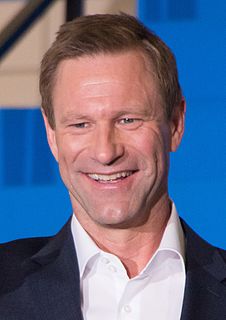A Quote by Bob DeMarco
I am saddened when I hear these words -this is not the person I knew - because those words objectify the person suffering from Alzheimer's. When you objectify a person you also dehumanize them. Once dehumanized the person becomes a villain.
Related Quotes
People say, "I have heart disease," not "I am heart disease." Somehow the presumption of a person's individuality is not compromised by those diagnostic labels. All the labels tell us is that the person has a specific challenge with which he or she struggles in a highly diverse life. But call someone "a schizophrenic" or "a borderline" and the shorthand has a way of closing the chapter on the person. It reduces a multifaceted human being to a diagnosis and lulls us into a false sense that those words tell us who the person is, rather than only telling us how the person suffers.
I don't think I'm a witty person. To me, a witty person is a funny person who is also a smart person. My friend David Rakoff, who died a few years ago, he was a witty person. Fran Lebowitz is a witty person. I don't think there are that many witty people around, so you tend to notice them when they do come around. I don't consider myself to be that.
In empathy, you don't speak at all. You speak with the eyes. You speak with your body. If you say any words at all, it's because you are not sure you are with the person. So you may say some words. But the words are not empathy. Empathy is when the other person feels the connection with what's alive in you.
I don't know if anyone has noticed but I only ever write about one thing: being alone. The fear of being alone, the desire to not be alone, the attempts we make to find our person, to keep our person, to convince our person to not leave us alone, the joy of being with our person and thus no longer alone, the devastation of being left alone. The need to hear the words: You are not alone.
I have no objection to any person's religion, be it what it may, so long as that person does not kill or insult any other person, because that other person don't believe it also. But when a man's religion becomes really frantic; when it is a positive torment to him; and, in fine, makes this earth of ours an uncomfortable inn to lodge in; then I think it high time to take that individual aside and argue the point with him.
If you get attached, then it becomes an obsession. If the person is not there, you are unhappy. If you miss the person, you are in misery. And attachment is such a disease that if the person is not there you are in misery, and if the person is there you are indifferent. Then it is okay; it is taken for granted. If the person is there it is okay - no more than that. If the person is not there, then you are in misery. This is attachment.


































